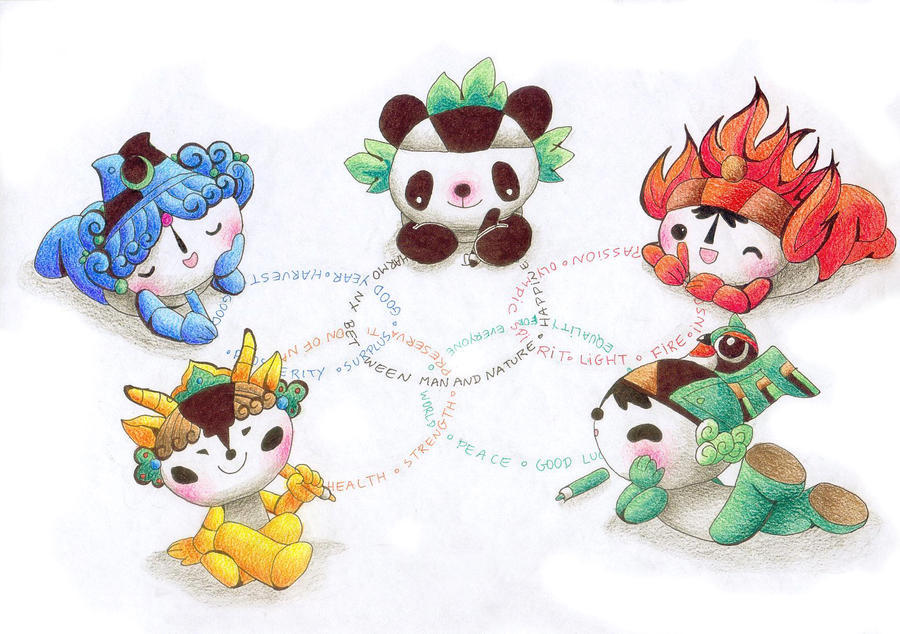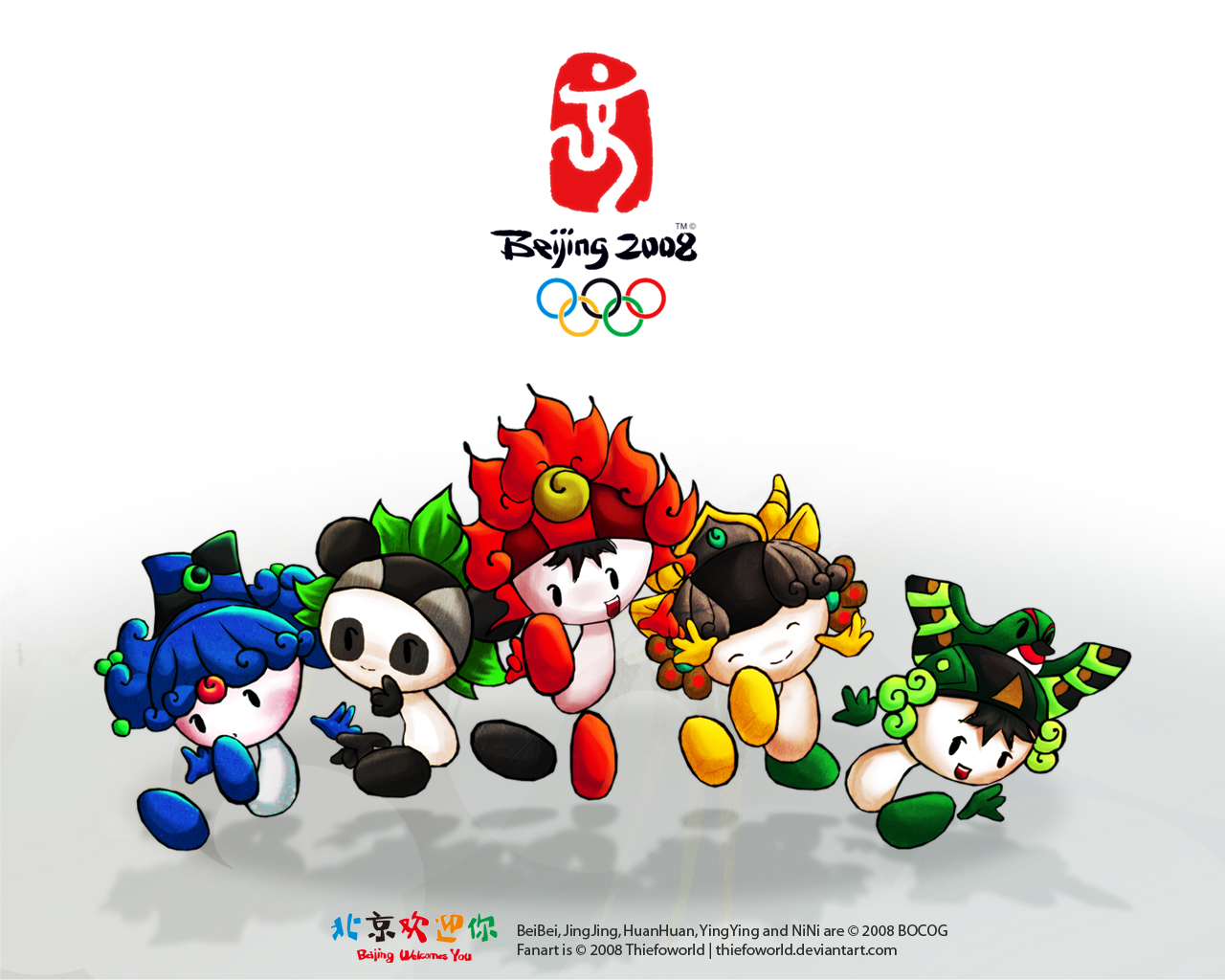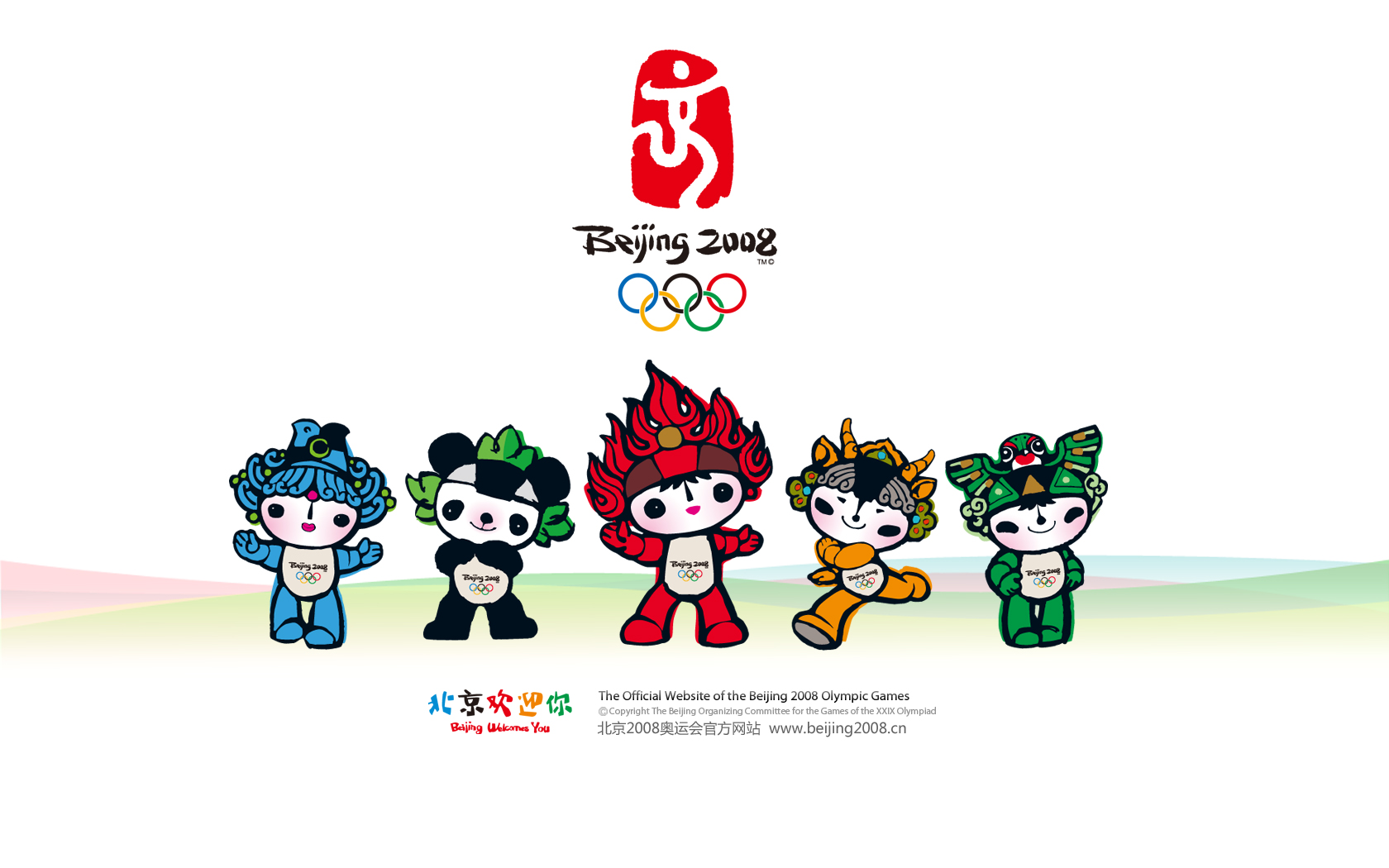Fuwa
The Fuwa (福 娃Chinese, Pinyin Fuwa, children of happiness ') or Friendlies were the mascots of the 2008 Summer Olympic Games in Beijing. These are the five figures of children Beibei, Jingjing, Huanhuan, Yingying, and Nini. They were on 11 November 2005, 1001 days before the Games, the Organizing Committee of the Games ( BOCOG) unveiled to the public.
Each of the five names is selected so that they correspond to a plausible name for a toddler. Substituting the five syllables but together, they sound almost exactly like the phrase北京 欢迎 你/北京 欢迎 你, Běijīng huanying nǐ, which translates as " Beijing You are welcomed " means. The selected motifs symbolize the elements of the five- element theory of Taoism: water, wood, fire, earth and metal. The colors of the figures correspond to the colors of the Olympic rings.
Beibei
Beibei (贝贝/贝贝) is a female blue fish, which is characterized as gentle and pure, the ideal of prosperity symbolizes and represents the swimming sports. The fish is next to the Lotus a traditional decoration during Chinese New Year.
In traditional Chinese culture the fish represents prosperity because the character for fish (鱼/鱼, yú ) is the same as that sounds for excess (余/余, yú ). The " Carps jumping over the dragon gate " is a traditional allegory for the reaction of dreams. The pattern of Beibei's Headwear by items that have been unearthed at Banpo, a village of the Neolithic Yangshao culture.
Jingjing
Jingjing (晶晶) is a male, black Giant Panda. He is described as honest and optimistic, symbolizes the ideal of happiness and provides strength and combat sports such as weightlifting and judo represents the inspiration comes from a lotus -shaped vessel made of porcelain of the Song Dynasty.
This endangered species is a national symbol of China and a worldwide symbol of the environmental movement. Jingjing's habitat, the forest symbolizes the harmonious coexistence between man and nature.
Huanhuan
Huanhuan (欢欢/欢欢) is a male Olympic torch in red. He is described as outgoing and enthusiastic, symbolizes the passion and stands for ball sports.
The flame Huanhuan represents the passion of the sport, the Olympic spirit of "faster, higher, stronger ", and the passion of the Olympic Games in Beijing. The design of the fire is inspired by a mural painting in the Mogao Grottoes, the most famous Buddhist prayer caves.
Yingying
Yingying (迎 迎) is a male yellow Tschiru. It is lively and cheerful, stands for the ideal of health and athletics disciplines.
This endangered species lives in Tibet and Xinjiang, and is known for its agility. Yingyings headgear combines elements of traditional costumes from these regions of the country.
Tibetan exile groups opposed to the use of the Tibetan antelope from an Olympic mascot by China. It was being used to - to consolidate power Chinese claims on Tibet - in their view, unjustified.
Nini
Nini (妮妮) is a female green Swallow. She is innocent and playful, represents a good fate and represents gymnastics.
In Chinese culture, the swallow is a messenger of spring and happiness. The Chinese character for Swallow (燕, Yan) is also used in Yanjing (燕京, Yanjing ), an ancient name of the city of Beijing.
- Olympic mascots
- Olympic Games 2008










